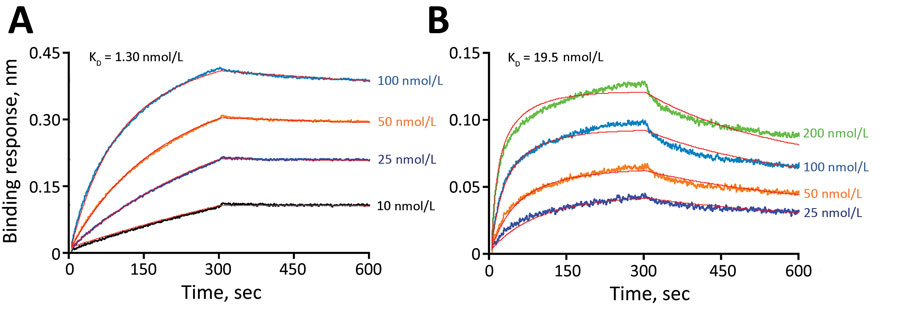Volume 27, Number 5—May 2021
Research
Susceptibility to SARS-CoV-2 of Cell Lines and Substrates Commonly Used to Diagnose and Isolate Influenza and Other Viruses
Figure 9

Figure 9. Canine ACE2 affinity to severe acute respiratory syndrome coronavirus 2 (SARS-CoV-2) spike protein compared with that for human ACE2 in study of susceptibility to SARS-CoV-2 of cell lines and substrates used to diagnose and isolate influenza and other viruses. Biolayer interferometry assay used to determine KD, the equilibrium dissociation constant of human ACE2 or canine ACE2 protein with SARS-CoV-2 spike protein.
Page created: February 24, 2021
Page updated: April 20, 2021
Page reviewed: April 20, 2021
The conclusions, findings, and opinions expressed by authors contributing to this journal do not necessarily reflect the official position of the U.S. Department of Health and Human Services, the Public Health Service, the Centers for Disease Control and Prevention, or the authors' affiliated institutions. Use of trade names is for identification only and does not imply endorsement by any of the groups named above.